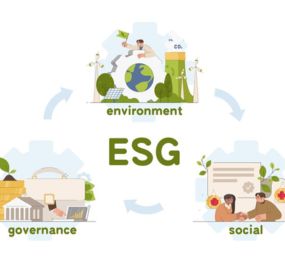Effective stakeholder engagement is paramount for the successful implementation of Environmental, Social, and Governance (ESG) principles in Africa. By actively involving and listening to the concerns and perspectives of all stakeholders, companies can build trust, enhance their reputation, and create shared value.
Key Stakeholder Groups in Africa:
- Communities: Local communities are directly impacted by business operations. Engaging with them through consultations, community development projects, and addressing local concerns is crucial for building trust and obtaining a social license to operate.
- Employees: Employee engagement is vital for successful ESG implementation. Involving employees in sustainability initiatives fosters a sense of ownership and empowers them to contribute to positive change.
- Investors: Investors increasingly prioritize ESG factors in their investment decisions. Engaging with investors to communicate ESG performance and address their concerns is essential for attracting capital and building long-term relationships.
- Suppliers: Engaging with suppliers to promote sustainable and ethical practices throughout the supply chain is crucial for ensuring the integrity of ESG commitments.
- Governments and Regulators: Engaging with government agencies and regulators is essential for navigating the regulatory landscape and ensuring compliance with relevant laws and regulations.
- NGOs and Civil Society Organizations: Collaborating with NGOs and civil society organizations can provide valuable insights, access to communities, and support for ESG initiatives.
Strategies for Effective Stakeholder Engagement:
- Transparent Communication: Open and transparent communication is essential for building trust with stakeholders. Companies should proactively disclose their ESG performance, address stakeholder concerns, and be transparent about their sustainability goals and progress.
- Two-Way Dialogue: Foster two-way communication channels to ensure that stakeholder perspectives are heard and considered. This can include surveys, consultations, focus groups, and regular dialogue sessions.
- Collaborative Decision-Making: Involve stakeholders in decision-making processes whenever possible, ensuring that their perspectives are integrated into the development and implementation of ESG strategies.
- Community Development Initiatives: Invest in community development projects that address local needs and priorities, demonstrating a commitment to social responsibility.
- Building Trust and Relationships: Building strong relationships with stakeholders requires consistent effort, ongoing dialogue, and a commitment to addressing their concerns.
By prioritizing stakeholder engagement, companies can effectively implement ESG principles, build trust and credibility, and create a more sustainable and equitable future for Africa.
To register or learn more about the Forum please check here: https://www.leadventgrp.com/events/esg-and-climate-africa-summit/details
For more information and group participation, contact us: [email protected]
















